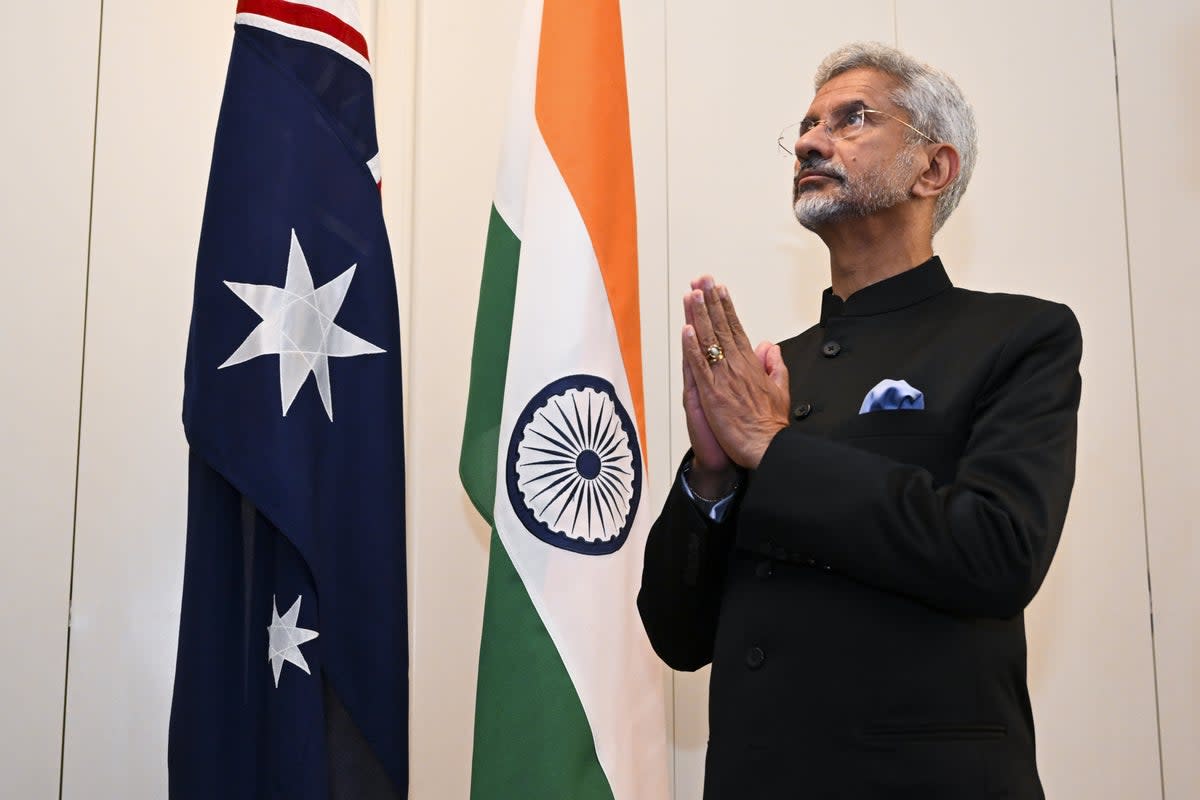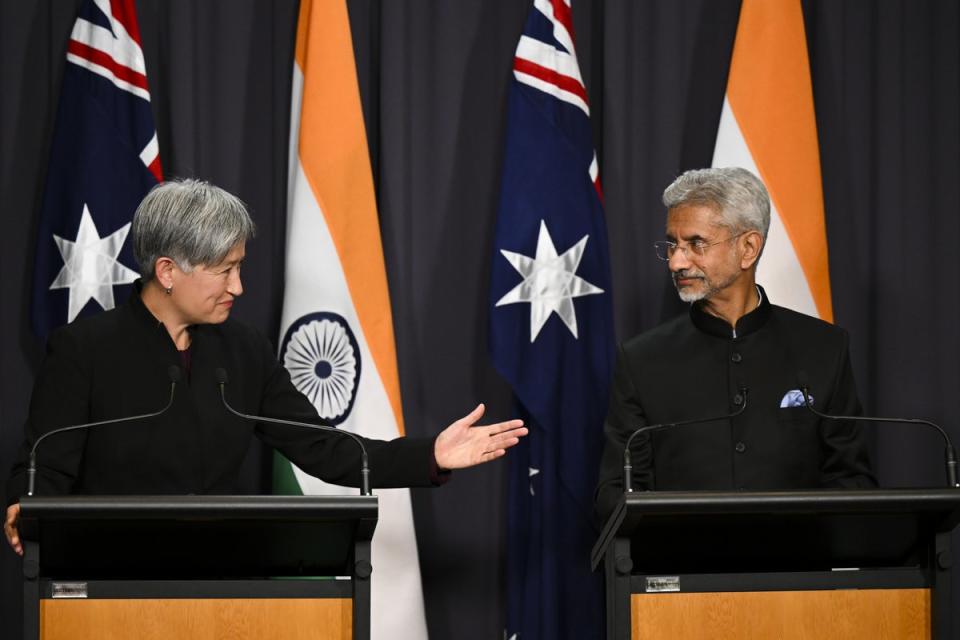Indian foreign minister slams the West for choosing Pakistan’s ‘military dictatorship’ over India for weapon imports

India’s foreign minister Subrahmanyam Jaishankar slammed Western countries for not supplying weapons to India and instead preferring a “military dictatorship”, in an apparent reference to Pakistan.
The Indian minister was defending New Delhi’s “long-standing” defence ties with Moscow while addressing a joint news conference on Monday with Australian foreign minister Penny Wong after the two held a bilateral meeting at Parliament House.
Mr Jaishankar was asked whether India is re-thinking its ties with Russia and its dependency on imports of weapons following the war in Ukraine.
“We have - as you know - a substantial inventory of Russian and Soviet-origin weapons, “ Mr Jaishankar responded.
“And that inventory grew for a variety of reasons. Not just for the merits of the weapons, but also because, over multiple decades, the western countries did not supply weapons to India and in fact, saw a military dictatorship next to us as the preferred partner.”
The Indian diplomat said Russia became one of the biggest defence suppliers to India also because of the “merits” of the Russian defence system over others in the world.
“I think we all - in international politics - deal with what we have. We make judgments which are reflective of both our future interests and current situation,” he added.
He added India’s “relationship [with Russia] has certainly served our interest well”.
The Indian foreign minister aimed at the US for supplying weapons to Pakistan, which was a close ally of the US-led West during the Cold War and a major non-Nato ally of Washington as a part of its war against terrorism during the war in Afghanistan.

Pakistan which has been ruled by the military for several decades in its 75-year-long history heavily relied on the US for its arms supply.
Mr Jaishankar’s comments came a week after he objected to the Biden administration reversing Donald Trump’s 2018 decision to stop all defence and security assistance to Pakistan, saying that Islamabad was not a partner in its fight against terror.
The US State Department approved $450m F-16 fighter jet fleet sustainment programme to Pakistan for the purpose of counter-terrorism.
He said the US was not “fooling anyone” by saying it was meant for counter-terrorism and suggested that New Delhi is the target as these jets are mostly used on Pakistan’s border with India.
Mr Jaishankar also said that India has been “very clearly against the conflict in Ukraine”.
“We believe that this conflict does not serve the interests of anybody. Neither the participants nor indeed of the international community,” Mr Jaishankar said.
“As a country of the Global South, we have been seeing firsthand how much it has impacted low-income countries, the challenges that they are facing in terms of fuel and food and fertilizers,” he added.
When asked if India would support the UN motion this week condemning Moscow’s annexation of four Ukraine regions, he did not give a direct answer.
“As a matter of prudence and policy, we don’t predict our votes in advance.”
India abstained on a similar draft resolution tabled at the UNSC last week to condemn Russia’s “illegal referenda” and annexation of four Ukrainian territories.
India’s repeated vote to abstain on various motions to block Russia has put New Delhi’s neutral stance on Moscow’s invasion of Kyiv in the spotlight, with Western countries seeking to pressure New Delhi to call out Vladimir Putin.
Mr Jaishankar also rubbished the idea that differences on Russia were undermining the Quadrilateral Security Dialogue, a partnership also involving the US and Japan better known as the Quad.
“The Quad is a mechanism that focuses on the Indo-Pacific, where the convergences among Quad partners is particularly strong.”


